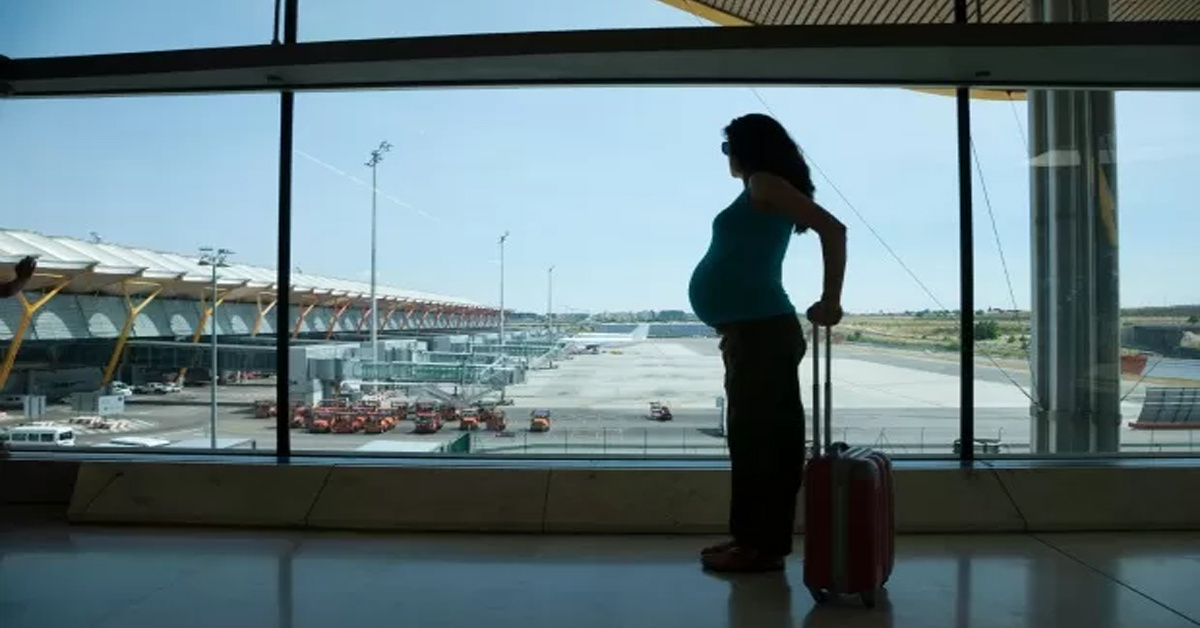Advertisements
Pregnancy is a delicate time in a woman's life. Expecting a child also brings with it many questions and insecurities about what is safe or dangerous during pregnancy. One of the situations that always raises questions is air travel. Many women have concerns about the risks of flying during pregnancy.
During an interview with the website GNT, gynecologists and obstetricians Domingos Mantelli and Antonio Paulo Stockler spoke about the topic and answered several questions about it.
Advertisements
According to doctor Antonio Paulo, there is no time during pregnancy when it is more or less advisable to travel by plane, as long as the pregnancy is progressing normally and without any medical impediment, that is, if there is no type of illness associated with the pregnancy that puts the woman at risk or threatens premature labor, there is no limitation regarding gestational age.
However, airlines themselves set a limit for pregnant women to travel alone, as beyond a certain period, the risk of going into labor during the flight increases, and in this case, they would require specialized care, which would not be possible mid-air. The gestational age limit can vary from airline to airline. Typically, airlines set the period between 32 and 34 weeks, when the probability of a woman going into labor increases.
Gynecologist and obstetrician Antonio Paulo also explains that even outside this period, women must travel with a medical certificate stating the number of weeks of their pregnancy and their health conditions and clearance to travel.
Advertisements
Doctor Domingos Mantelli explains that in a low-risk pregnancy and with clearance from her obstetrician to travel, a woman can travel normally, knowing that her pregnancy and baby are not at risk. However, he emphasizes that pregnant women have a higher risk of leg swelling and that air travel favors the occurrence of thrombosis. Therefore, all pregnant women should travel wearing moderate-compression stockings and get up every three to three hours to walk around and maintain active leg circulation.
Domingos Mantelli offers other warnings and explains the risks faced by pregnant women with more delicate health conditions. "Pregnant women with health problems, such as lung or cardiovascular disease, may experience worsening during travel. Women at risk of miscarriage should also avoid flying because they won't have access to treatment, and the pressurization itself could be considered responsible for the miscarriage. There's no clear evidence on this, but women experiencing bleeding should avoid flying because they risk losing their pregnancy," the doctor explains.
Another case in which travel should be avoided is twin or multiple pregnancies, as these cases significantly increase the chances of premature labor. As with a singleton pregnancy, expectant mothers of twins or multiples can travel, as long as they are in good health and have been cleared by their doctor. However, in these cases, it is recommended that pregnant women travel no later than the 30th week.
In what situations is travel not recommended?
Pregnant women with threatened miscarriage, lung disease, cardiovascular disease, or a high risk of thrombosis should not travel by plane, says doctor Antonio Paulo Stockler. As with the previous cases, travel should only be undertaken after guidance and approval from the doctor responsible for the pregnant woman. She should travel under his or her own instructions, including the use of stockings, medications, etc.







